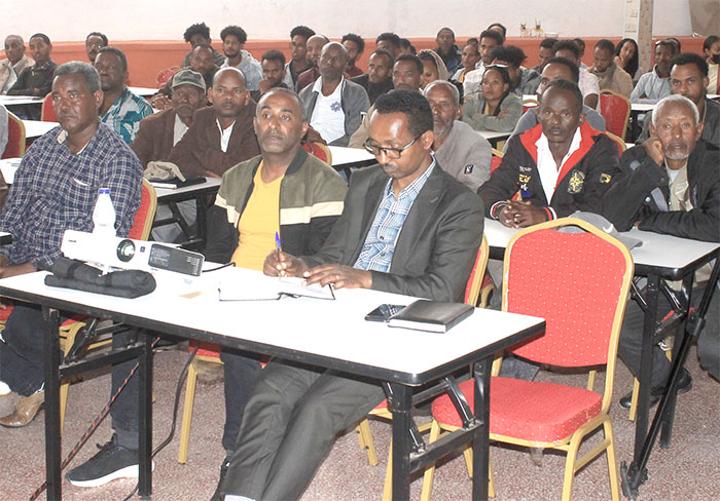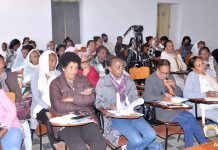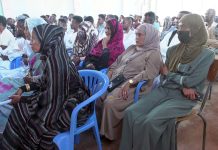Africa-Press – Eritrea. There is a strong belief that Savings and Micro-Credit Programs (SMCP) have a significant contribution to individuals and small and medium start-ups and support economies at large. The goal of the Savings and Microcredit Program in Eritrea is to provide citizens living in rural, suburban, and urban areas with easy access to financial loans. It also gives employees in the public and private sector access to loans that are paid back by deducting a certain percentage of their monthly salary over an extended period of time and caters to retirees who would like to be productive citizens.
On March 4, the SMCP conducted an assessment of its activities in Asmara under the theme “no citizen will be deprived of productivity due to lack of financial access.” In his presentation at the meeting, Mr. Tadele Tekeste, head of Operations Department at the SMCP, reiterated SMCP’s vision, mission, and values and elaborated on group and individual loans, the two types of loans SMCP gives.
Typical members of group loans have low income and no prior work experience and are not required to have collateral. Individual loans, on the other hand, are available to customers who have been members in group loans and to new customers who meet the loan requirements and have a start-up or skills they can use to generate income. The amount of money a customer can borrow ranges from 30,000 to 150,000 Nakfa.
Up until the end of 2005, SMCP’s policy did not allow employees in both the public and private sectors to borrow. However, the policy was revised in early 2006 and a new loan program was introduced, allowing employees to borrow a maximum of 40,000 Nakfa. Customers’ debts are settled within one or two years by deducting the required amount from their monthly salary.
Before taking out a loan from the SMCP, customers are required to deposit 10% of the total amount of their approved loan. And in an event they wish to cancel their membership, the deposit is returned to them with interest as per the guidelines of the Bank of Eritrea.
Mr Tadele said SMPC’s services have been growing over the years. Eleven rural banks were established in 2022, bringing the total number of banks to 762, the number of borrowers to 70,696, and the amount of money borrowed to 295.7 million Nakfa.
The fund’s operational structure is available across the country. It is divided into 67 sub-zones and 628 local administrative areas. Today, SMCP has 777 rural banks in 23 branches that serve 73,542 customers. According to Mr Tadele, in 2022, the amount of loans taken by groups is the largest, which is 42.2 percent, while 40.1 percent of the loans were taken by employees and the remaining 17.8 by individuals. And the number of women customers was slightly more (52.5 percent) than that of men.
In terms of SMCP’s distribution of loans at a regional level, the Central region takes the lead, with 24.3 percent, and is followed by Gash Barka region, with 17.8 percent, Anseba region, with 17.7 percent, Gash Barka region, with 13.6 percent, Southern region, with 13.4 percent, and Northern Red Sea region, with 13.2 percent.
In her presentation at the meeting, Mrs Letekidan Oqubaslassie, head of the SMCP, outlined the branch’s overall tasks, its human resource capacity, and the functions of the units reporting to her. She stated in her report on the documentation process that from 2014 to 2022, the receipt and payment documents taken and returned by the regions from the central office store were thoroughly examined and disposed of. She added that regional requests to verify clients’ documents have been met, and some cases involving customers who did not pay their debts between 2007 and 2012 have been investigated.
The assessment meeting ended by proposing a work plan for 2023. The proposed plan includes intensifying monitoring and supervision in the regions, putting emphasis on non-serviced loans, establishing branches to promote loans for employees, rearranging jobs to increase employees’ efficiency and intensifying campaigns to increase public and stakeholder awareness about funding practices.
The SMCP was founded in July 1996 and currently has 311 employees. It was run by the Ministry of Local Government for the first five years as part of the Eritrean Community Development Fund (ECDF), and since 2002 it has been operating under the auspices of the Ministry of Finance and National Development.
For More News And Analysis About Eritrea Follow Africa-Press







